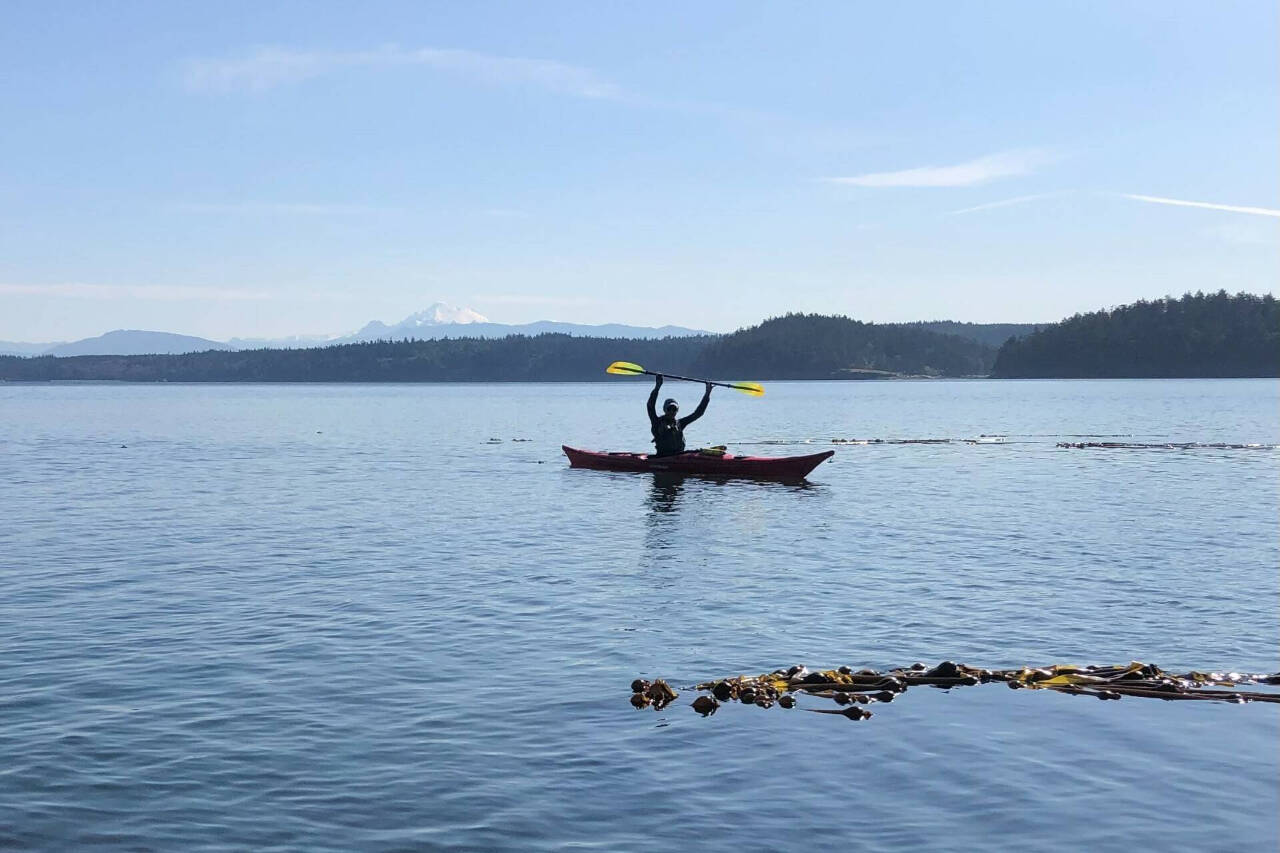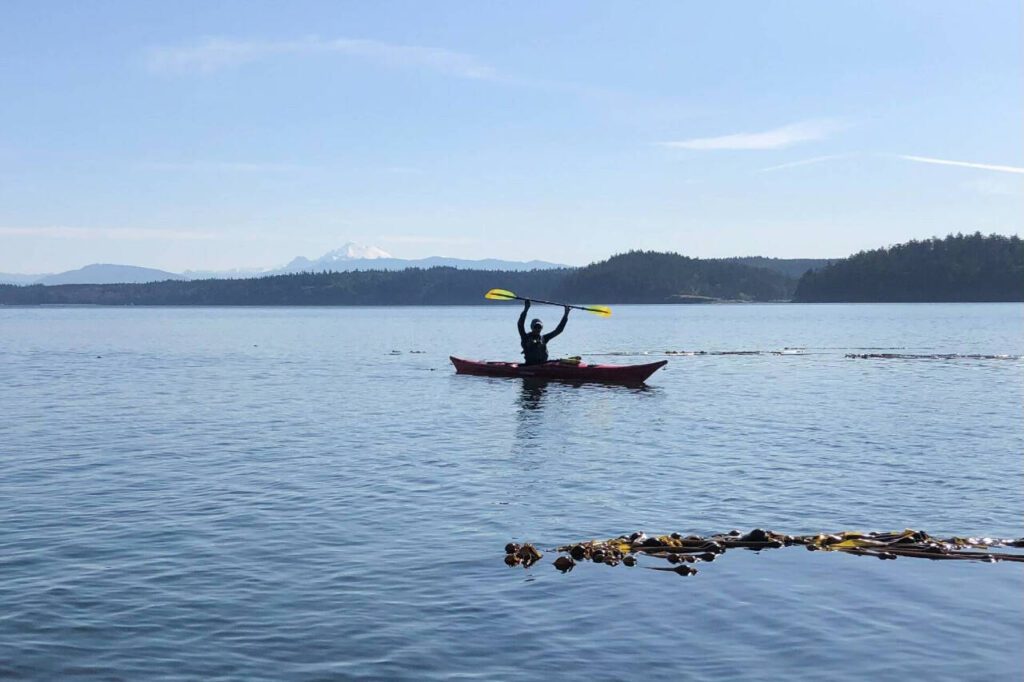Beyond tall cliffs and Whidbey’s southernmost beach lies a 90-acre underwater forest wrapping around almost the entirety of Possession Point. Rows and rows of bull kelp filter the morning light through the water, a shadowy maze for the animals dwelling within.
At the surface, Island County bull kelp monitoring project lead Carter Webb guides his team around the forest’s perimeter, kelp blades tickling the base of the kayaks. It’s early, and Webb is collecting data for depth, temperature and size of the forest to see how it’s changed from last year and how that has impacted the countless animals relying on kelp — a list humans are at the top of.
Volunteers with the Island County Marine Resources Committee’s kelp monitoring program, overseen by the Northwest Straits Commission and supported by the Department of Natural Resources, have circled the island this summer to assess the state of Whidbey’s kelp for a broader project across the Salish Sea.
Webb began scientific diving for his undergraduate degree in California and fell in love. After working as a kayak guide, once he heard about the opportunity to kayak among the kelp as often as he could, he volunteered with the county.
Bull kelp is an annual seaweed, growing from a spore to maturity in a single year. It can reach up to 100 feet tall at a rate of 10 inches per day. Of the 17 species of kelp in the Salish Sea, bull kelp is the only one that provides canopy. It can serve as a refuge from changing environmental pressures and a rest from predators for juvenile animals. Fisheries rely on kelp and seagrass for these reasons.
“Kelp is a really, really interesting species,” Webb said. “It’s very dissimilar from plants and even seaweed. Kelp is what we call an ecosystem engineer, where it has this really, really interesting ability to influence the environment in which it sits in a very unique way which creates habitat for just about every single species that we care about here in the Salish Sea, and even the ones that we don’t care about that are just as important, so I have been in love with kelp for a long time.”
Webb’s team members paddle along, finding key points in the kelp bed via GPS. There, they take the sea surface temperature and the temperature at depth. On the shallow side of the bed, they repeat the process. They’re looking for how the kelp beds, or at least their expression on the sea surface, change throughout the summer.
This year, kelp monitoring teams have seen an increase in both size and density of South Whidbey’s kelp forest, a stark contrast from last summer, but the full data for the entirety of the county won’t be available until this winter, Webb said.
The stakes of these numbers are high. About two-thirds of Puget Sound’s bull kelp has disappeared in the last century, with the main cause thought to be the warming ocean. Webb’s work is providing numbers to help understand such a rapid die-off.
Temperatures in Whidbey’s waters vary greatly, Webb has learned, and as such the kelp beds do too.
On the east side of the island, Saratoga Passage traps freshwater from the rivers. The west side flows dense saltwater from the Strait of Juan de Fuca. Possession Point is an “interesting mix of all,” he said.
Kelp has a relatively low threshold for high temperatures, especially in its youth stage. Researchers think temperature greatly affects how the kelp grows. These different water sources can cause all kinds of chemical and temperature differences affecting the ecosystem, and this affects kelp breeding as well.
Bull kelp monitors have perused Whidbey’s waters since 2015; the data subset is still limited.
“The ins and outs and the dynamics of what causes kelp die-off and kelp regeneration and restoration are still very, very up in the air,” Webb said.
The data they collect today will lay the groundwork for future researchers to analyze over time to discover correlations between environmental conditions and kelp health, he said.
“The more we understand about these life cycles and about the Salish Sea more broadly, the more we understand that our data collection needs to be more complex and more holistic from a standpoint of stewarding our ocean.”
Talk to us
> Give us your news tips.
> Send us a letter to the editor.
> More Herald contact information.


























